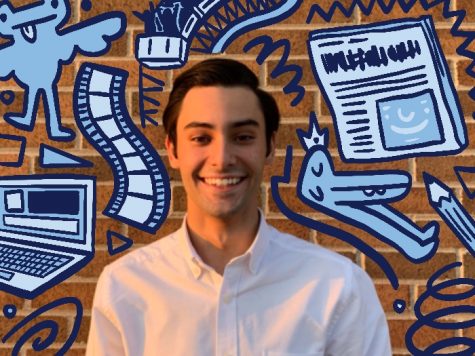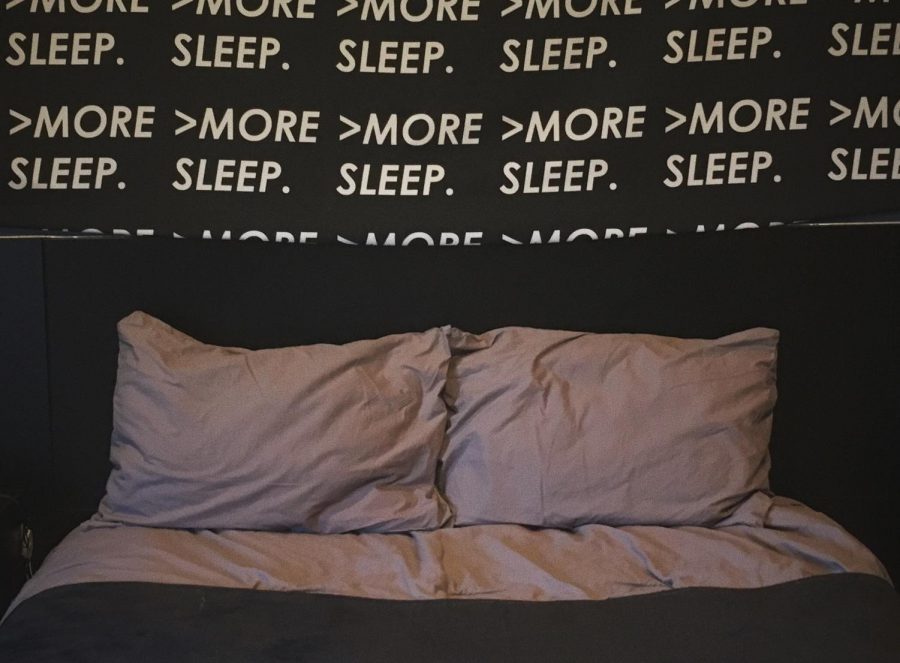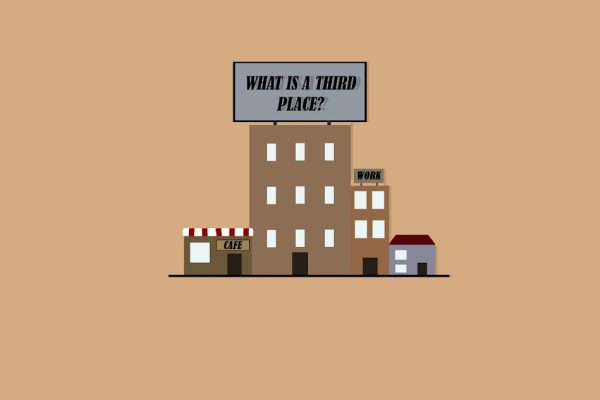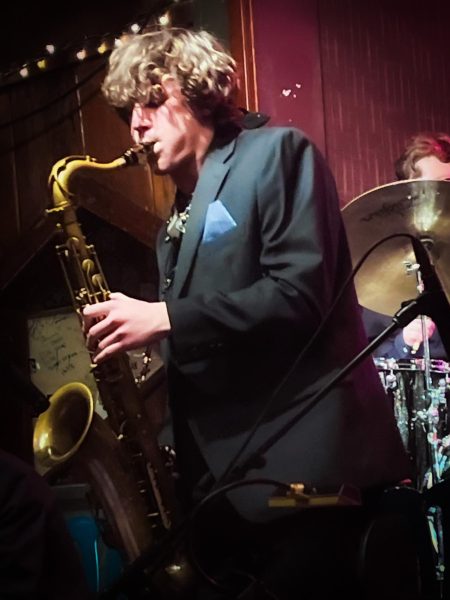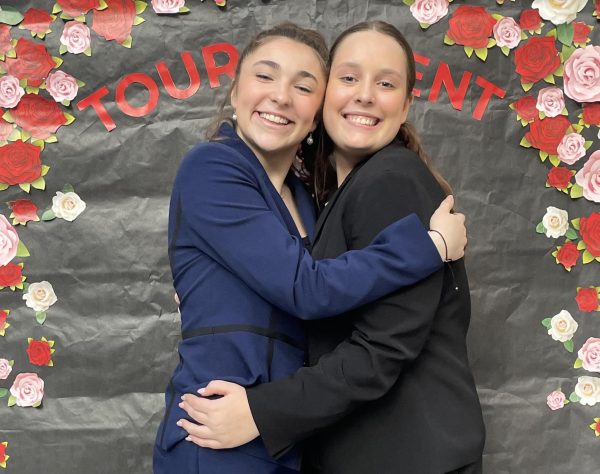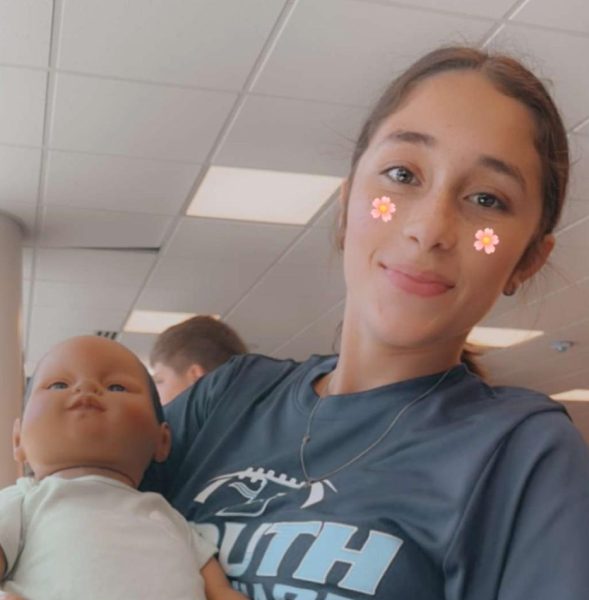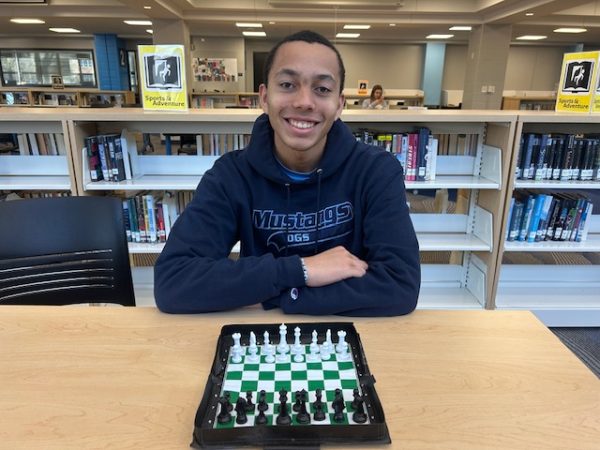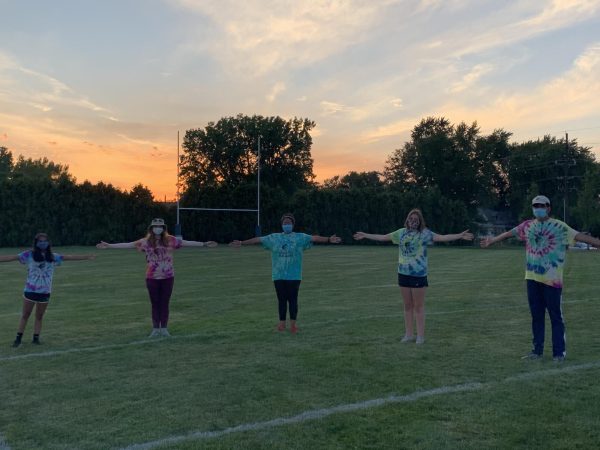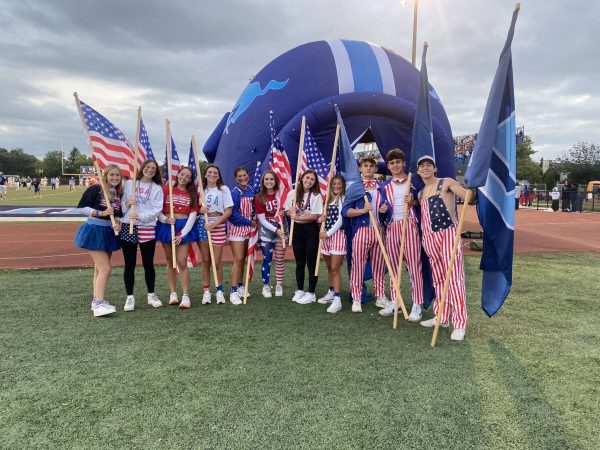Living the nightmare: Sleep paralysis affects DGS students
“It’s like being a prisoner in your own body,” Fountain said.
Most individuals have been burdened by the horrors of a bad dream, but only a select few have endured lasting physical consequences from their sleep patterns.
As a young child, senior Olivia Yesker discovered that simply plugging in a night light would not alleviate the terrors in her sleep. Living with a condition known as sleep paralysis, Yesker details her first experience with the frightening episode.
“The first time it happened, I was maybe eight or nine, and that was a little terrifying. Once I could move, I ran to my mom sobbing, and she was like, ‘Sometimes it happens… I promise it’s okay,’” Yesker said.
Sleep paralysis is a chronic, incurable disorder that occurs when an individual is transitioning in and out of sleep. The brain awakens but the body remains paralyzed, rendering one unable to move or speak and be prone to hallucinations.
To help understand the condition she was dealing with, Yesker studied sleep paralysis in-depth during a middle school research project.
“When I was in eighth grade, I did a project on it with my friend in science class for a self-selected research assignment. I learned a lot more about the brain chemistry behind [sleep paralysis], which is pretty interesting because I’ve experienced it myself. Through research, I’ve rationalized it enough to understand that there are just issues with the [chemicals] in my brain,” Yesker said.
According to livescience.com, “During rapid eye movement (REM) sleep, dreaming is frequent, but the body’s muscles are relaxed to the point of paralysis. Researchers have found that two brain chemicals, glycine and GABA, are responsible for this muscle paralysis.”
Junior Alyssa Fountain explained what it felt like to live through this unsettling occurrence.
“I screamed for my mom in the other room so loud, but no sound came out. I tried to get movements in my fingers to pinch or scratch myself so I could wake up, but nothing happened. It’s like being a prisoner in your own body,” Fountain said.
Fountain was introduced to the concept of sleep paralysis during her sophomore year. When an after-school nap triggered an episode, she decided to seek professional help.
“I told my therapist about my experience and she’s the one that suggested it was sleep paralysis and explained to me what it was,” Fountain said.
I heard whispers in my ears and had a cold sweat come over me.
— Eva Dockendorff
Senior Eva Dockendorff was also an underclassman in high school when she initially faced the symptoms of the disorder.
“My earliest memory of having sleep paralysis is when I was around 14 or 15. During an episode, I felt a heavyweight [on my body], and it felt like someone was trying to attack me. I heard whispers in my ears and had a cold sweat come over me,” Dockendorff said.
Many people throughout history have described a symptom of sleep paralysis to be an intense feeling or fear of an “evil” presence. Hallucinations are responsible for this common theme, as people believe there are demons in their room trying to suffocate them (webmd.com).
All three students express similar obstacles that sleep paralysis imposes on their educational careers at DGS. Dockendorff in particular notes that consistent sleep paralysis disruptions result in increased exhaustion, causing academic distractions.
“I usually get sleep paralysis about two to three times a month. It will affect my sleep schedule and will sometimes lead to me being super tired at school,” Dockendorff said.
Yesker attributes her rigorous academic responsibilities at DGS as a catalyst for anxiety and sleep issues.
“When I am really stressed out, [sleep paralysis] happens more. Going into high school, I started getting it more often. The earliest I’ve had it was last week. Within a six month period I’ll usually get it three or four times, which is my best gauge of it,” Yesker said.
In her final reflection, Fountain summarizes her ongoing battle with the condition in these words:
“Sleep paralysis is by far the most terrifying thing that I have ever experienced in my life,” Fountain said.

